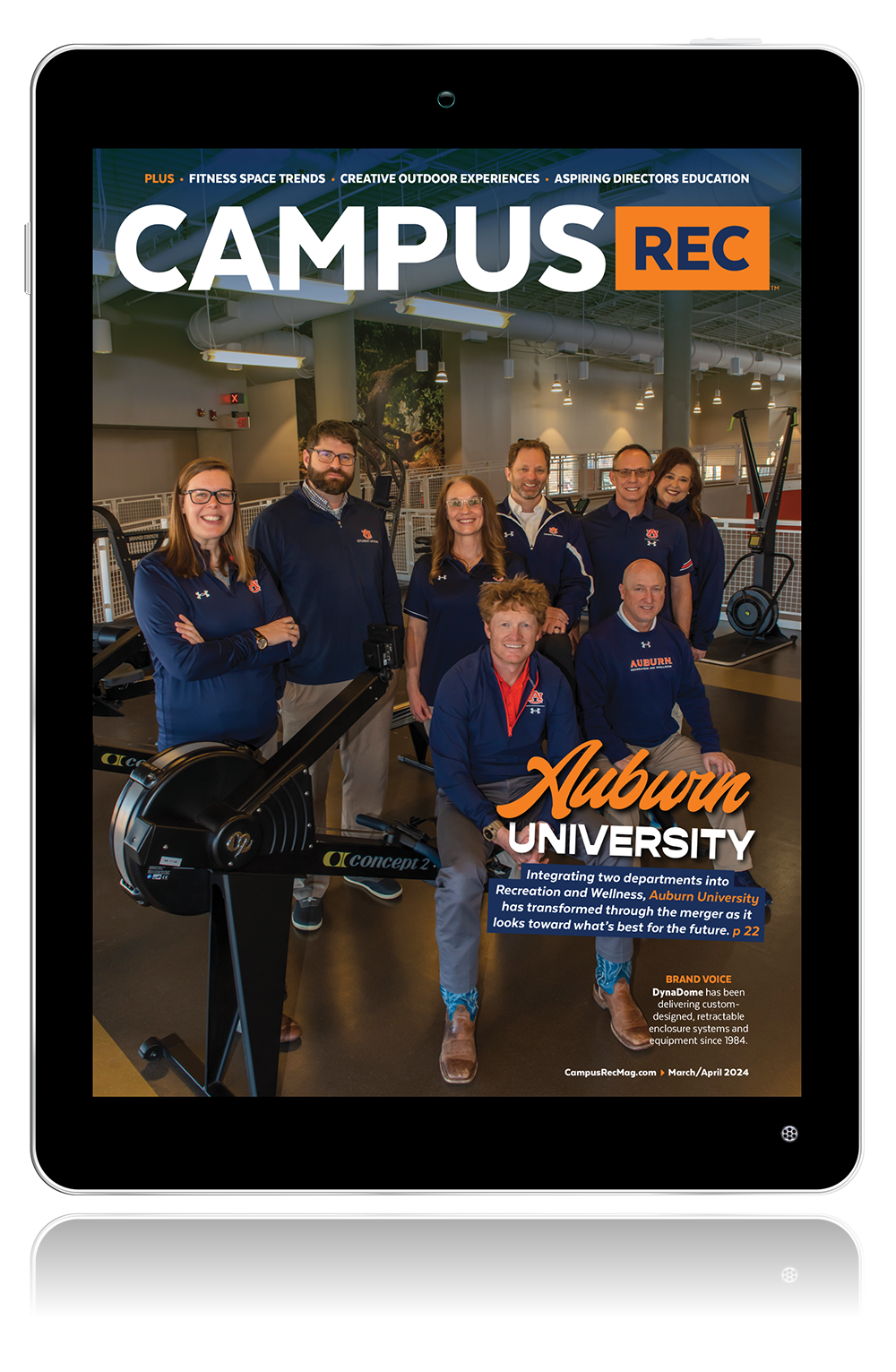In the March/April 2023 issue, A’Naja Newsome, Ph.D, ACSM-CEP lecturer of Health Sciences at the University of Central Florida, shared advice on mental health outcomes.
Can you briefly share your background and how you got to where you are today?
AN: With more than a decade of professional experience in higher education, I have spent my career advocating for the benefits of regular exercise and sport participation. I earned a B.S. in exercise science and my Ph.D. focused on exercise epidemiology and the psychology of behavior change.
Despite the positive impact exercise has on physical and mental health, the rate of participation is concerning. Less than 50% of U.S. adults meet the guidelines for physical activity. There are non-communicable conditions such as metabolic syndrome and certain types of cancers that each have physical inactivity as a risk factor. I believe people more readily connect the need for physical activity behavior interventions to support individuals with obesity or diabetes.
However, the prevalence of these conditions is even higher in individuals with mental illnesses such as major depressive disorder, stress-related disorders, and generalized anxiety disorder. This is an opportunity for counseling professionals and exercise practitioners to partner to improve physical and mental health care and treatment standards.
As a researcher, I want to help improve the health outcomes of young adults with mental illness through integrative medicine, which includes lifestyle interventions like physical activity.
From your research, what are two to three specific ways exercise/physical activity can positively impact the current mental health crisis on campuses across the country?
AN: Physical inactivity is a global public health issue. Exercise is important for the physical health of college students, but there are many mental health benefits. Engaging in regular exercise has demonstrated significant positive effects on chronic mental illness such as improved mood, increased cognitive performance and reduced negative symptomology. Here is why that’s important for college students and campus rec administrators:
- College students who participate in regular physical activity report increased social support and better quality of life. These are important considerations for individuals that may be suffering from feelings of isolation. Sense of belonging on campus contributes to positive affective feelings and decrease the severity of poor mood states.
- There is a direct relationship between modifiable lifestyle factors (i.e., exercise), cognitive function and academic success. Students are more likely to achieve academic success when they have enhanced working memory, flexible thinking and self-regulation skills. Exercise has been shown to improve these processes (i.e, executive functioning). These processes help to reduce cognitive worry and feelings of helplessness — major contributors to poor mental health in college students.
- Negative symptoms of mental illness result in functional impairment which can lead to absenteeism. This means students may fall behind in coursework, experience decreased motivation for degree attainment and report reduced quality of life. Aerobic exercise has been shown to have a beneficial effect on these symptoms. This is important because aerobic exercise has fewer barriers than strength training and sport participation which increases accessibility for a diverse student population.
How can campus rec leaders contribute to improving mental health outcomes for students on campus?
AN: Young adults transition into college life and experience a myriad of new challenges including academic rigor, financial responsibilities, social activities and changing relationships with family. These are stressful situations that require students to develop positive coping strategies. It is important college campuses embrace an interdisciplinary approach to mental health. Not every student needs pharmacotherapy and we know lifestyle changes can be a great adjunct to cognitive behavioral therapies.
Campus recreation leaders should reach out to their counseling colleagues to develop referral systems. It is also critical to understand and work to reduce barriers for students who may be currently receiving treatment for a mental health issue. Students experiencing symptoms of depression, anxiety or stress may have different barriers to participating in campus rec than students not experiencing these symptoms. For example, students with generalized anxiety disorders may not be comfortable entering a campus facility with large crowds of other students. Consider partnering with academic departments or student organizations where informal recreation can occur in less intimidating spaces.
Additionally, campus rec programs should center the psychological benefits of movement. For example, group fitness classes may be marketed as an “opportunity to connect with other students” or “reduce the stress of tests” during examination periods. For students that do not believe they need exercise to improve a physical health concern, the psychological and social value may increase the likelihood of participation.
What are you currently working on with the ACSM Exercise is Medicine that campus rec leaders should take note of?
AN: Much of my dissertation work centers on the importance of integrating physical activity as a vital sign of health. This is a major premise of the ACSM Exercise is Medicine initiative globally. College campuses represent a microcosm of society in which students are learning important skills and developing habits. It is critical college campuses also provide the resources necessary for holistic healthcare during this time. The primary aim of this research is to understand the factors that would increase the promotion of physical activity and the prescription of exercise in primary and mental health healthcare.










